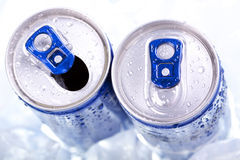 ed by CSPI (the US’s Center for Science in the Public Interest) from the Food and Drug Administration are said to show that since late 2012, 17 previously unreported deaths have been linked to the controversial caffeinated beverages known as energy drinks.
ed by CSPI (the US’s Center for Science in the Public Interest) from the Food and Drug Administration are said to show that since late 2012, 17 previously unreported deaths have been linked to the controversial caffeinated beverages known as energy drinks.According to adverse event reports collected by the agency since 2004, a total of 34 deaths have now been linked to energy drinks. Of those, 22 deaths have been linked to 5-Hour Energy, 11 deaths have been linked to Monster, and one death, a first, has been linked to Rockstar. Excluding a suicide, these deaths include the 17 deaths previously disclosed by the agency and reported on by the New York Times and other media outlets in the fall of 2012.
And, said CSPI, these deaths don't necessarily include other deaths reported in the media, such as that of 16-year-old Lanna Hamman of Arizona, who died on vacation on June 14 in Mexico after consuming several cans of Red Bull. And, of course, some deaths might have been caused by energy drinks without doctors making that association.
The reports do not prove that energy drinks actually caused the deaths, said CSPI. Two years ago the FDA told Congress that it was investigating the reports that it had received, but it has not yet released a report to Congress or the public.
In addition to the newly disclosed deaths, 56 previously undisclosed injuries have been reported to the FDA through its adverse event reporting system. These and other serious events resulted in 54 hospitalisations, as recorded in the adverse event reports, with consumers experiencing high blood pressure, convulsions, heart attacks, and other problems after drinking energy drinks.
"As I see in my medical practice, energy drinks are clearly causing symptomatic arrhythmias," said Dr. Stacy Fisher, director of complex heart diseases at University of Maryland School of Medicine. "These new reports of deaths and other injuries raise the level of concern about the adverse effects of energy drinks."
CSPI has asked FDA commissioner Margaret Hamburg to require warning labels on energy drink containers notifying consumers of the risk of heart attack, convulsion, and other adverse reaction to energy drinks. As a further precaution, the group asked the agency to require manufacturers to lower caffeine levels in the drinks to 0.02 percent, or 71 milligrams per 12 ounces—the maximum amount the FDA considers safe in cola-style beverages.
Also, CSPI asked the agency to require careful studies on the health effects of the various chemical and herbal ingredients (such as taurine, glucuronolactone, carnitine, ginseng, ginkgo biloba, milk thistle extract, and guarana seed) used in energy drinks and their possible interactions with caffeine.





